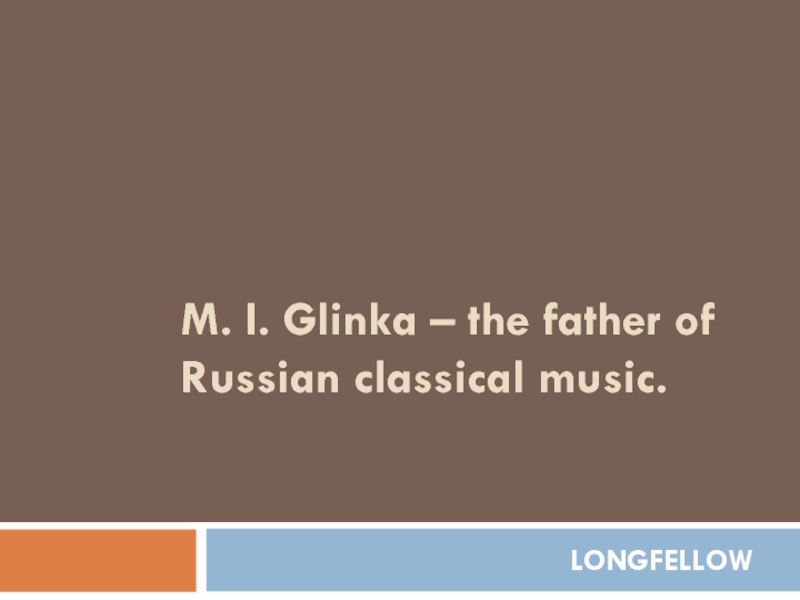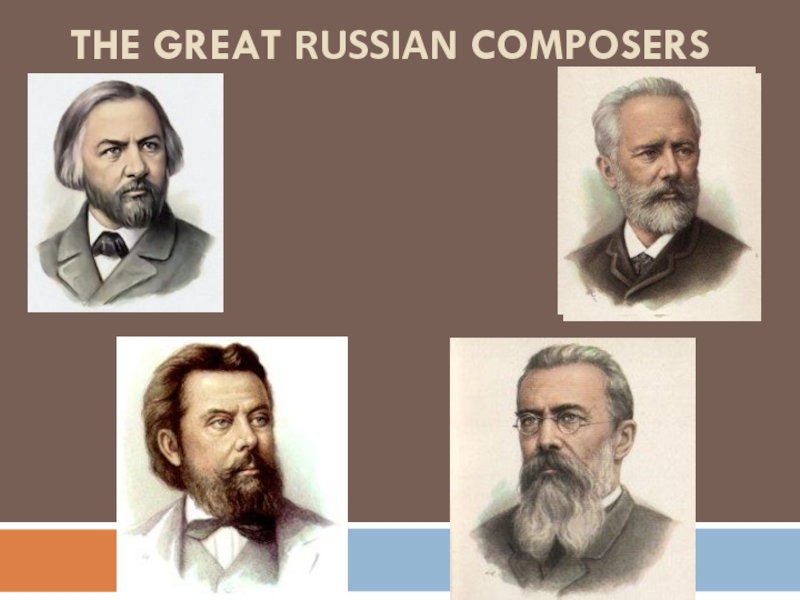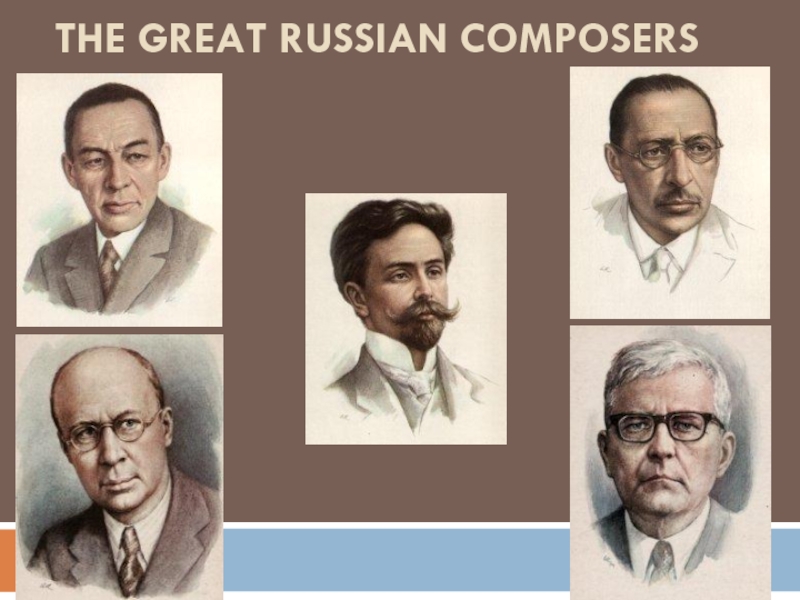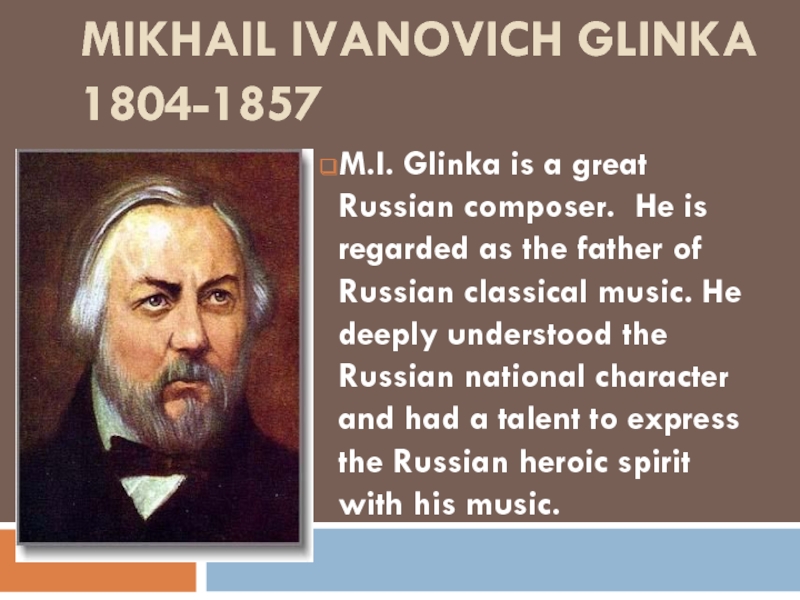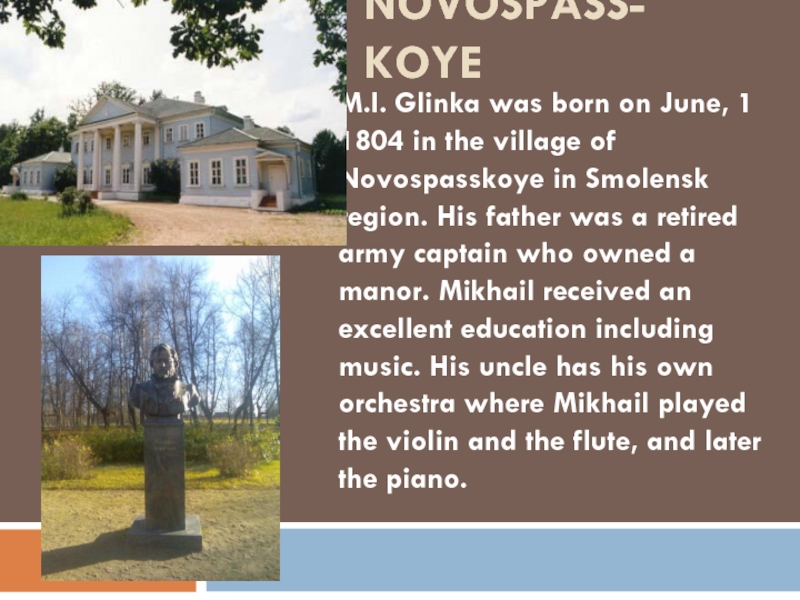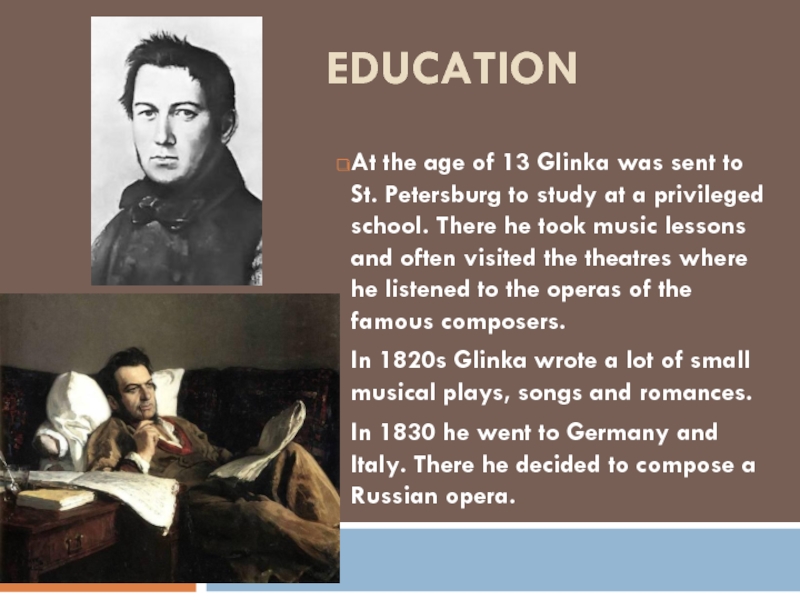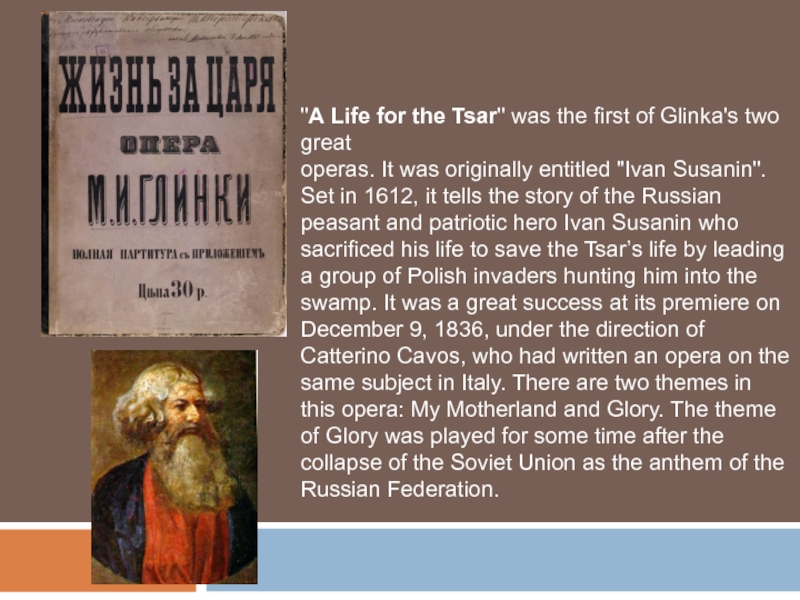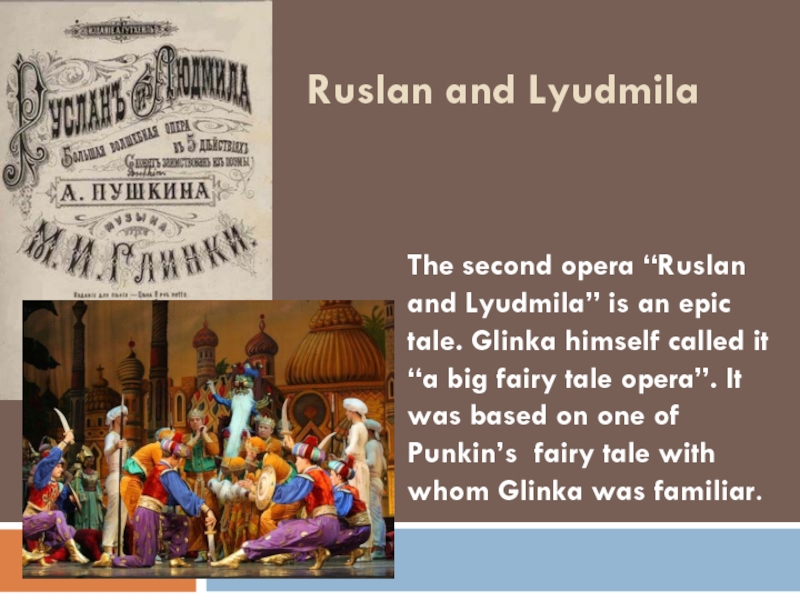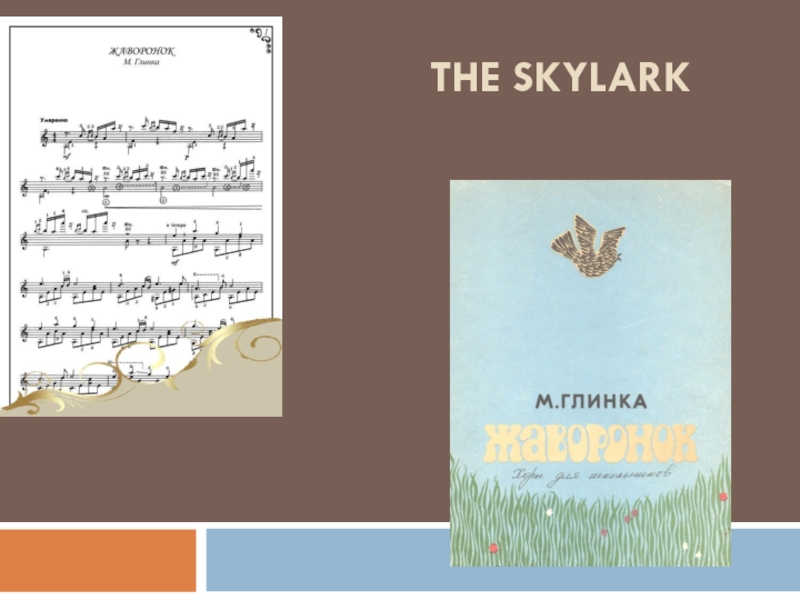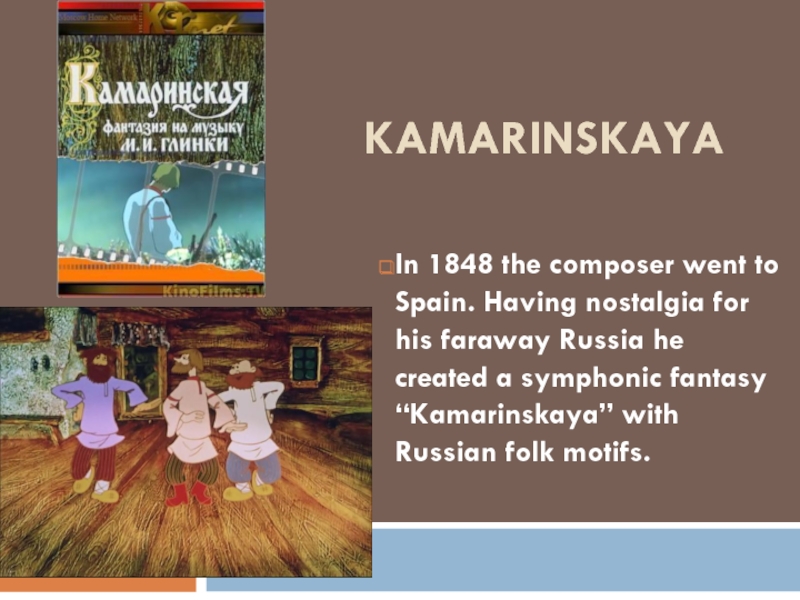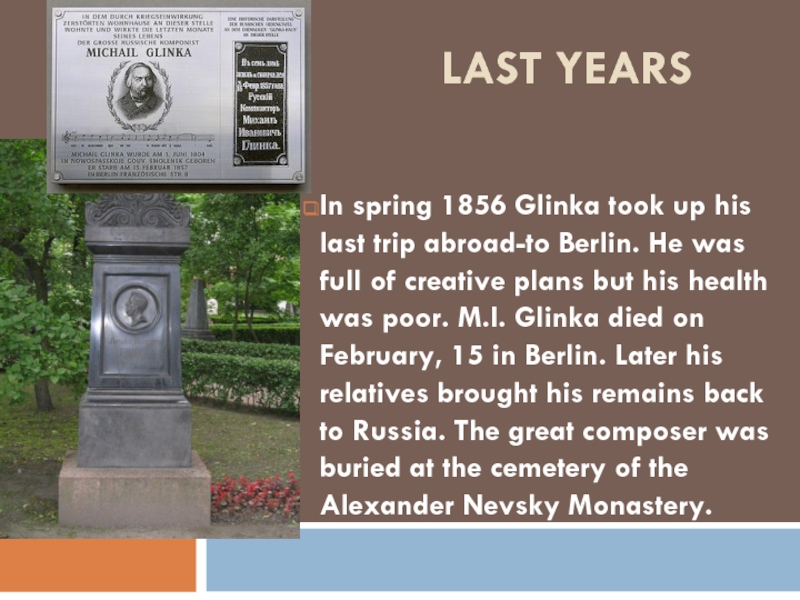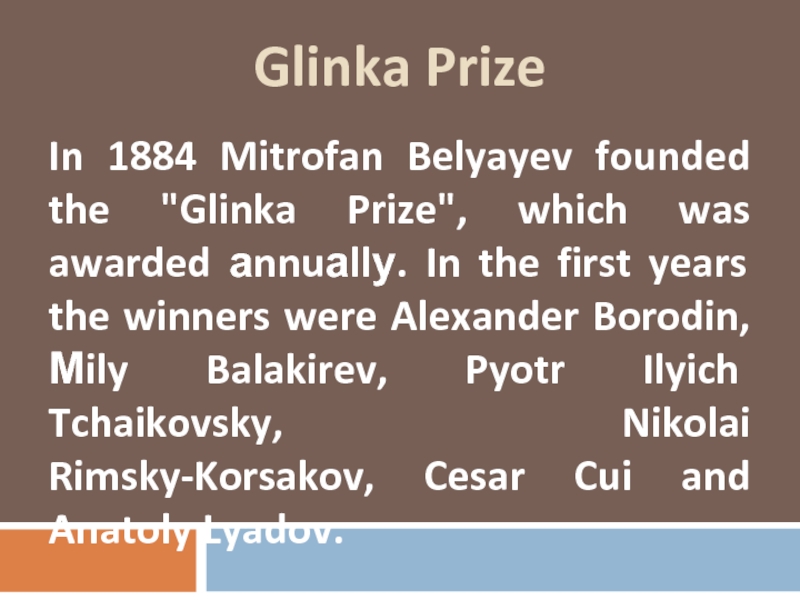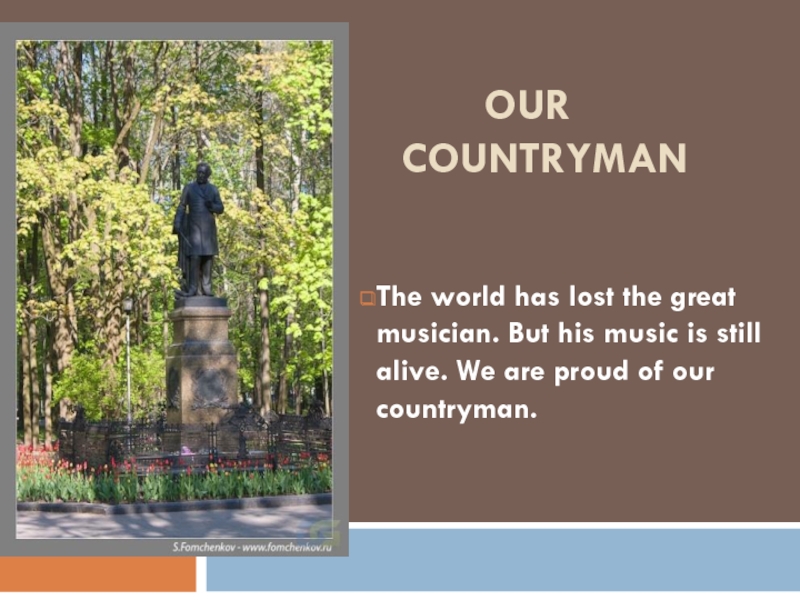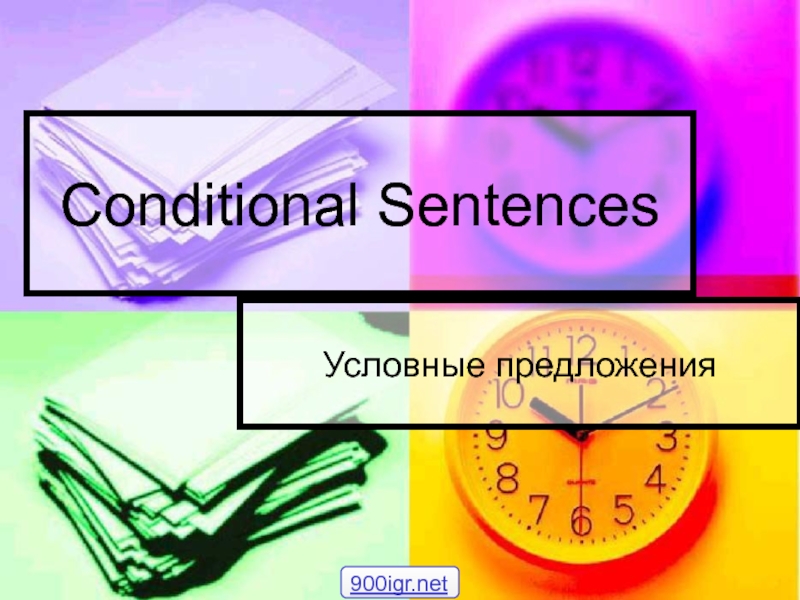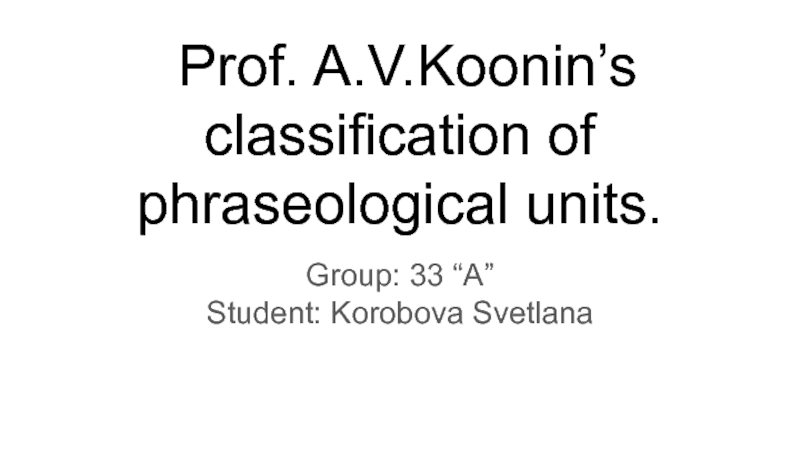- Главная
- Разное
- Дизайн
- Бизнес и предпринимательство
- Аналитика
- Образование
- Развлечения
- Красота и здоровье
- Финансы
- Государство
- Путешествия
- Спорт
- Недвижимость
- Армия
- Графика
- Культурология
- Еда и кулинария
- Лингвистика
- Английский язык
- Астрономия
- Алгебра
- Биология
- География
- Детские презентации
- Информатика
- История
- Литература
- Маркетинг
- Математика
- Медицина
- Менеджмент
- Музыка
- МХК
- Немецкий язык
- ОБЖ
- Обществознание
- Окружающий мир
- Педагогика
- Русский язык
- Технология
- Физика
- Философия
- Химия
- Шаблоны, картинки для презентаций
- Экология
- Экономика
- Юриспруденция
M.I. Glinka – the father of Russian classical music презентация
Содержание
- 1. M.I. Glinka – the father of Russian classical music
- 2. THE GREAT RUSSIAN COMPOSERS
- 3. THE GREAT RUSSIAN COMPOSERS
- 4. MIKHAIL IVANOVICH GLINKA
- 7. TSAR "А Life for the Tsar" was
- 8. Ruslan and Lyudmila The second opera “Ruslan
- 9. THE SKYLARK
- 11. LAST YEARS In spring
- 12. Glinka Prize In 1884 Mitrofan Belyayev founded
- 13. OUR COUNTRYMAN The
Слайд 4MIKHAIL IVANOVICH GLINKA 1804-1857
M.I. Glinka is a
Слайд 5
KOYE
M.I. Glinka was born on June, 1 1804 in the village of Novospasskoye in Smolensk region. His father was a retired army captain who owned a manor. Mikhail received an excellent education including music. His uncle has his own orchestra where Mikhail played the violin and the flute, and later the piano.
Слайд 6
At the age of 13 Glinka was sent to St. Petersburg to study at a privileged school. There he took music lessons and often visited the theatres where he listened to the operas of the famous composers.
In 1820s Glinka wrote a lot of small musical plays, songs and romances.
In 1830 he went to Germany and Italy. There he decided to compose a Russian opera.
Слайд 7TSAR
"А Life for the Tsar" was the first of Glinka's two
Слайд 8Ruslan and Lyudmila
The second opera “Ruslan and Lyudmila” is an epic
Слайд 10
In 1848 the composer went to Spain. Having nostalgia for his faraway Russia he created a symphonic fantasy “Kamarinskaya” with Russian folk motifs.
